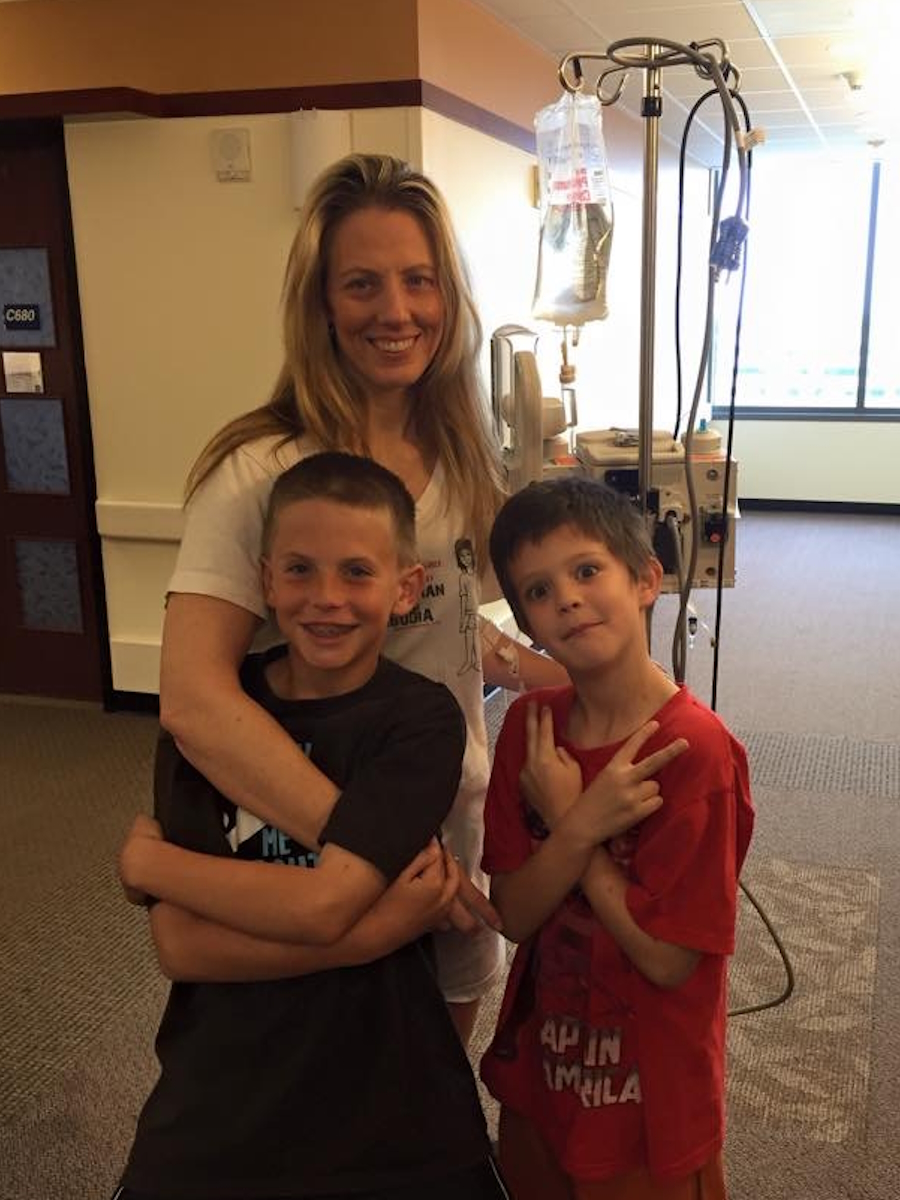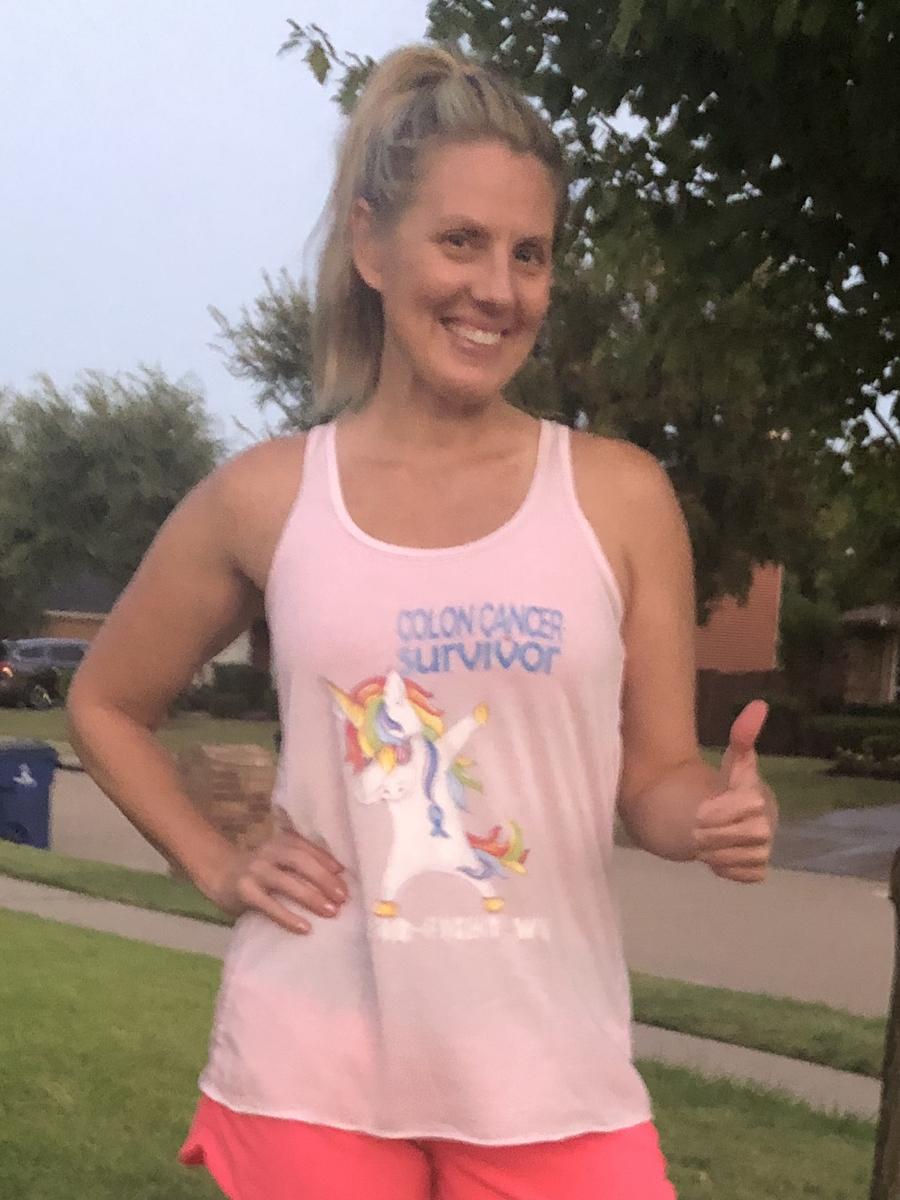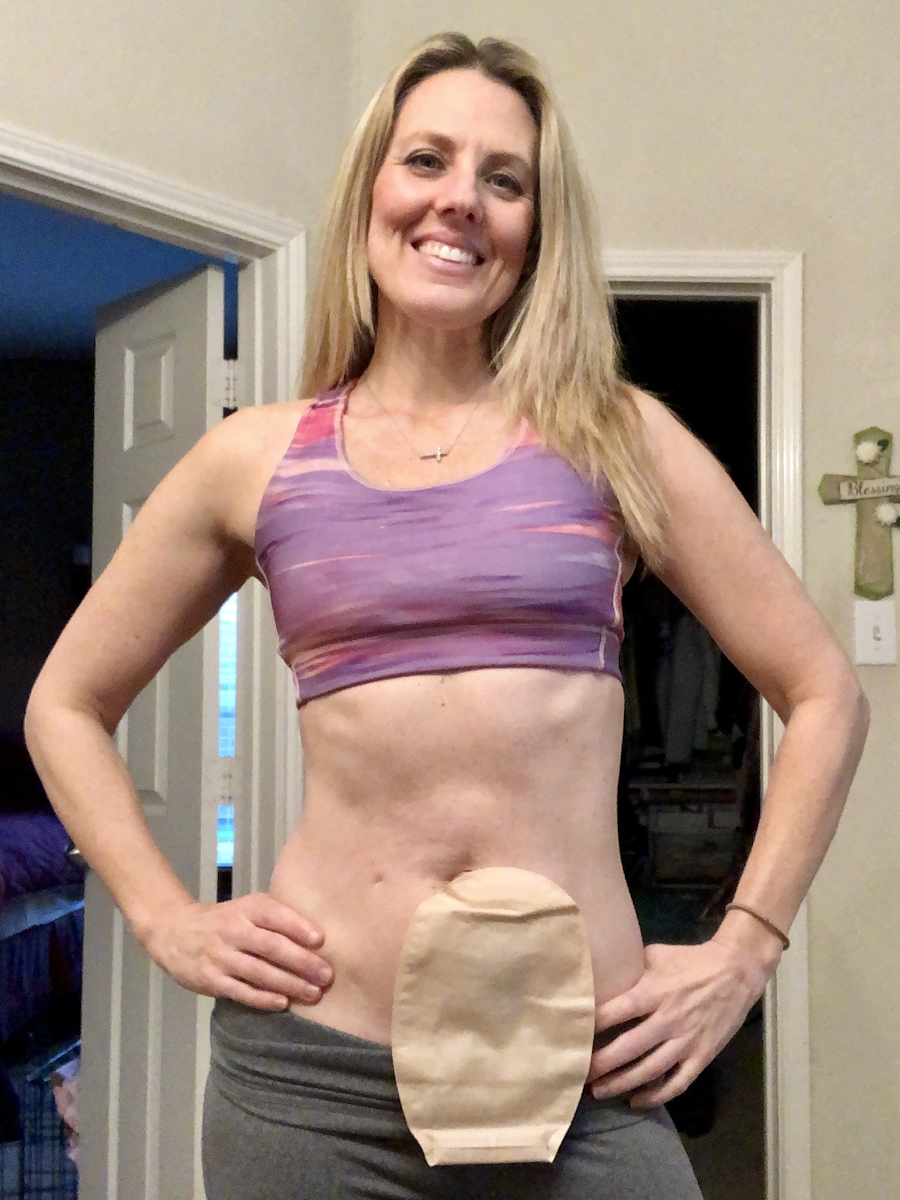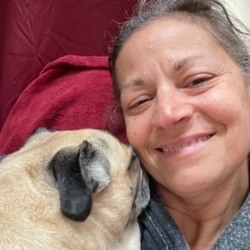Tracy’s Stage 2B Colorectal Cancer Story
Interviewed by: Nikki Murphy
Edited by: Katrina Villareal

Tracy was diagnosed with stage 2B colorectal cancer at 41. A former special education teacher turned personal trainer and nutrition coach, Tracy has long been passionate about promoting a whole-food, toxin-free lifestyle. Despite her healthy habits, she began experiencing troubling symptoms related to her digestive system that were dismissed by multiple doctors over the years.
Tracy’s health issues began in her 20s when she was diagnosed with irritable bowel syndrome (IBS), leading to frequent trips to the emergency room. Despite changing her diet and lifestyle, her symptoms persisted, including bloating, inflammation, and intermittent bleeding. During a vacation in 2014, Tracy saw blood in the toilet, prompting her to seek further medical evaluation. Initially attributing her symptoms to a hemorrhoid, her OB/GYN prescribed suppositories, which provided only temporary relief.
Concerned by the recurrent symptoms, Tracy eventually consulted a gastrointestinal specialist who recommended a colonoscopy. The procedure revealed a polyp near the anal verge, and further tests confirmed it was malignant. Although not initially alarmed, Tracy soon realized the gravity of her situation as she was referred to a colorectal surgeon.
The news was tough—her cancer was located so low in the rectum that surgery would likely require a permanent colostomy bag. Tracy sought multiple opinions, hoping for a different outcome, but each doctor confirmed the same treatment plan: neoadjuvant chemotherapy, radiation, and surgery. Her optimism was tested, but a compassionate oncology team helped her navigate the emotional and physical challenges ahead.
Tracy’s treatment began with 28 days of chemotherapy and radiation. She opted for oral chemotherapy (Xeloda), hoping it would feel less invasive, but the side effects quickly took a toll. By the third week of radiation, she experienced severe pain, dehydration, and burning sensations, leading to hospitalization. Despite her resistance to the idea of surgery, the worsening symptoms and the results of her post-radiation colonoscopy convinced her to proceed.
In December 2015, Tracy underwent surgery, resulting in a colostomy. Although she initially struggled to accept her new reality, including the emotional impact of living with a colostomy bag, she found strength through her faith and the support of her husband and doctors. Post-surgery, Tracy faced additional chemotherapy, but her body reacted severely and she was eventually advised to stop treatment due to complications.
Through it all, Tracy wrestled with feelings of shame and guilt, questioning whether her past choices led to her diagnosis. However, she ultimately embraced her situation, using it as an opportunity to advocate for self-awareness and early detection, particularly through colonoscopies. Tracy’s message is clear: listen to your body, advocate for your health, and turn pain into purpose by helping others.
- Name: Tracy R.
- Age at Diagnosis:
- 41
- Diagnosis:
- Colorectal Cancer
- Staging:
- Stage 2B
- Symptoms:
- Bloating and inflammation
- Heaviness in the rectum
- Intermittent rectal bleeding
- Fatigue
- Treatments:
- Chemotherapy
- Radiation
- Surgery
This interview has been edited for clarity and length. This is not medical advice. Please consult with your healthcare provider to make informed treatment decisions.
The views and opinions expressed in this interview do not necessarily reflect those of The Patient Story.

Inspired by Tracy's story?
Share your story, too!
More Colorectal Cancer Stories
Cora V., Colorectal Cancer, Stage 4 (Metastatic)
Symptoms: Fatigue, unintentional weight loss, blood and mucus in stool
Treatments: Chemotherapy, chemoradiation, surgeries (temporary ileostomy and reversal, liver surgeries and ablation)
Monica D., Colorectal Cancer, Stage 1
Symptoms: None; caught at a routine colonoscopy
Treatment: Surgery (low anterior resection with temporary diverting ileostomy)
Edie H., Colorectal Cancer, Stage 3B
Symptom: Chronic constipation
Treatments: Chemotherapy, radiation, surgeries (lower anterior resection & temporary ileostomy)
Shayla L., Colorectal Cancer, Stage 4
Symptoms: Stomach sensitivity, food intolerances, exhaustion, blood in stool
Treatments: Chemotherapy, surgery (hepatectomy)
Tracy R., Colorectal Cancer, Stage 2B
Symptoms: Bloating and inflammation, heaviness in the rectum, intermittent rectal bleeding, fatigue
Treatments: Chemotherapy, radiation, surgery
Paula C., Colorectal Cancer, Stage 3
Symptoms: Painful gas, irregular bowel movements, blood in stool, anemia, severe pain, weight loss, fainting spells
Treatment: Surgery (tumor resection)











